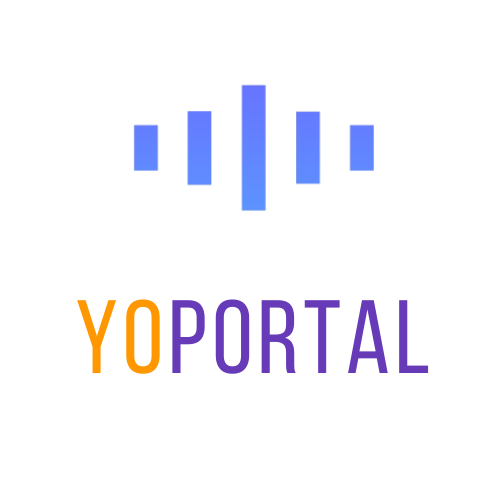
As part of Solutions Review’s Contributed Content Series—a collection of articles written by our enterprise tech thought leader community—Gavin Verreyne, the SVP of Professional Services at SYSPRO Americas, shares his predictions for where AI and ERP technologies will go in 2024 (and beyond).
 ChatGPT’s release in November 2022 set off one of the most intense hype cycles for a new technology that the industry has ever seen. NVIDIA, which makes the GPU chips that provide the high performance required by generative AI, has seen its net income grow to a startling $9.2 billion in Q3 2023—a more than 1200 percent increase compared to 12 months prior. Boards of directors and CEOs are putting enormous pressure on CIOs to incorporate generative AI into technology strategy, but use cases are still a bit fuzzy.
ChatGPT’s release in November 2022 set off one of the most intense hype cycles for a new technology that the industry has ever seen. NVIDIA, which makes the GPU chips that provide the high performance required by generative AI, has seen its net income grow to a startling $9.2 billion in Q3 2023—a more than 1200 percent increase compared to 12 months prior. Boards of directors and CEOs are putting enormous pressure on CIOs to incorporate generative AI into technology strategy, but use cases are still a bit fuzzy.
Whatever the best use cases turn out to be, it’s clear that generative AI will have a transformative effect on business and technology that will likely be bigger than any of the prior paradigm shifts: client-server, Web/Internet, cloud-first/mobile-first, and maybe even DotCom. And, of course, generative AI is just the latest iteration of the general category of artificial intelligence. Cognitive, analytic, and predictive AI already play a significant role in many business applications, and generative AI will synergize with all of these to provide even greater value to end-users.
My area of expertise is ERP, and I’ve given a lot of thought to how generative AI will transform this key platform for business operations. Here’s how I see it playing out over the next few years.
The Current State of AI and ERP
ERP platforms today use cognitive AI to consume and process data from documents such as purchase orders and invoices. This enables ERP to initiate and automate transactions faster and more accurately than manual methods.
Predictive AI is also a key ERP technology. For instance, it can analyze inventory and purchase order data to optimize ordering and ensure that a manufacturer neither runs out of critical components nor keeps an excessive amount on hand. It will take the concepts of lean manufacturing and apply the concepts of AI to them. It can also crunch socio-economic, supply chain, and supplier data to predict when orders will arrive on time and which suppliers will likely be affected by external factors. But these applications are just the tip of the iceberg—many other use cases exist in maintenance, marketing, sales, and other business functions.
Operating in harmony, these AI capabilities enable ERP to identify potential problems long before they negatively affect the business and point to potential optimizations that can make the organization far more efficient. That’s a lot of value, and generative AI has the potential to provide even more.
Adding Generative AI to the ERP Mix
OpenAI’s ChatGPT may be the best-known generative AI, but it’s far from the only one. Microsoft Copilot, Google Bard, and others distinguish themselves from other types of AI because they learn from truly enormous datasets to uncover subtle and complex patterns that enable them to create new content—images, video, text, audio, and computer code, for example—meeting a user’s natural language requests on demand. It’s a new technology, so naturally, there are issues, most notably its tendency to hallucinate references, events, and other facts that don’t really exist. However, with the proper contextual guardrails, hallucinations can be managed. I have no doubt it will become an integral part of every leading ERP platform.
For starters, generative AI will provide end-users with a much more natural and intuitive way of interacting with the ERP platform, both in terms of making requests and receiving information. For example, instead of clicking through menus or building dashboards to get updates on KPIs, an ERP user could type or even dictate a request in ordinary speech, such as “Give me a list of all the suppliers who have missed delivery dates within the last month.” Want more information or a different format? Simply say or type, “Send me a chart with this information on the first of each month via email.”
This capability doesn’t just sound cool; it also produces massive efficiencies. According to recent research, employees who use AI to assist them in their daily work see a 50 percent productivity increase. This use case for generative AI can apply to any task that entails gathering, analyzing, and presenting information in a report or even processing a transaction.
Over time, working with the ERP will feel less like a maze of plowing through menus and typing in data and more like Captain Kirk interacting with the Starship Enterprise’s computer. It sounds audacious, but this transformation will likely happen faster than you imagine.
Generative AI can also efficiently summarize, index, and organize large volumes of data, such as a highly complex purchase order for a large construction project. A project to do this for, say, 10 GB of unstructured data could quickly rack up several hundred thousand dollars in consulting fees. Generative AI could accomplish this in a small fraction of the time and cost.
Working in harmony with predictive AI, generative AI could summarize thousands of purchase orders, send the summarized information to predictive AI, and create a forecast for likely demand for specific products over the next six months. The exact process using supply chain data could predict raw materials with the highest risks of shortages.
Don’t Jump in Without Testing the Waters
As impressive and transformational as generative AI will be, remember, we’re still in the early stages of adoption. As we saw with the cloud, where tons of products and services marketed themselves as “cloud-enabled” without truly adding any new cloud functionality, there will be plenty of “AI washing.” Evaluate ERP vendors’ claims carefully before investing in generative AI capabilities.
That said, companies that use generative AI wisely will gain significant competitive advantages over their rivals. Once generative AI becomes commonplace in ERP—and it likely will within the next few years—it will feel like a different platform in a very good way. It will be easier to work with faster access to insights and data tailored to your specific needs.

 9 months ago
95
9 months ago
95
